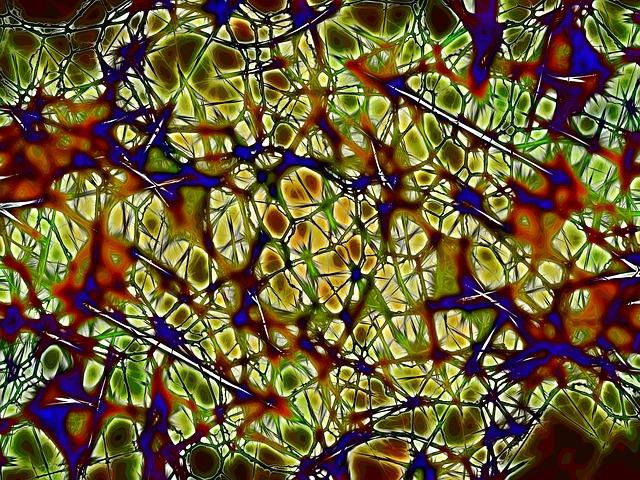Dartmouth scientists discover method to potentially repair nerve damage

Dartmouth Professor Glenn Micalizio's new research advances the effort to synthesize rare natural products that promote regeneration and growth of injured nerve cells. Credit: Dartmouth College
Neurotrophins, or proteins that promote the development of neurons, have been investigated as potential therapeutic agents, but they have a variety of drawbacks. A group of small molecule natural products, however, possesses potent neurotrophic properties without some of the shortcomings of protein-based agents.
Unfortunately, a source of suitable quantities of these substances to enable thorough medicinal exploration has yet to be identified. As such, the development of synthetic processes to generate molecules in this class (and related unnatural analogs) is critically important to establish science capable of fueling the discovery of therapeutic agents within the class.
That said, many member of this natural product class boast very complex carbocyclic structures that have stood as substantial challenges to modern synthetic chemistry.
Now, Dartmouth researchers have discovered that one of their recently discovered chemical reactions is capable of delivering some of the most potent and rare members of this natural product class.
Their pursuits resulted in the laboratory preparation of three neurotrophic natural products in the class and demonstrated the first application of their new carbocycle-forming reaction in natural product synthesis.
In addition to these accomplishments, the researchers' study also led to the discovery of a new radical cascade reaction process that proved instrumental for completing their laboratory syntheses of these complex agents.
“Advances of this nature are critically important for defining a foundation of science necessary for advancing rare natural products as therapeutic agents,” says co-author and principal investigator Glenn Micalizio, the New Hampshire Professor of Chemistry at Dartmouth College.
“Simply stated, without a synthetic means to access such agents, development of therapeutics based on their structure would not be possible. While other syntheses of natural products within this class have recently been reported by others, our current achievement defines a unique synthesis pathway that could be employed to prepare synthetic analogs not easily accessed by others. Also, this marks the first successful application of our chemical method for hydrindane synthesis in the context of natural product synthesis.”
The findings appear in the Journal of the American Chemical Society. A PDF is available on request.
###
The research was supported by the National Institutes of Health.
Professor Glenn Micalizio is available to comment at Glenn.C.Micalizio@dartmouth.edu.
Broadcast studios: Dartmouth has TV and radio studios available for interviews. For more information, visit: http://communications.
Media Contact
All latest news from the category: Life Sciences and Chemistry
Articles and reports from the Life Sciences and chemistry area deal with applied and basic research into modern biology, chemistry and human medicine.
Valuable information can be found on a range of life sciences fields including bacteriology, biochemistry, bionics, bioinformatics, biophysics, biotechnology, genetics, geobotany, human biology, marine biology, microbiology, molecular biology, cellular biology, zoology, bioinorganic chemistry, microchemistry and environmental chemistry.
Newest articles

Bringing bio-inspired robots to life
Nebraska researcher Eric Markvicka gets NSF CAREER Award to pursue manufacture of novel materials for soft robotics and stretchable electronics. Engineers are increasingly eager to develop robots that mimic the…

Bella moths use poison to attract mates
Scientists are closer to finding out how. Pyrrolizidine alkaloids are as bitter and toxic as they are hard to pronounce. They’re produced by several different types of plants and are…

AI tool creates ‘synthetic’ images of cells
…for enhanced microscopy analysis. Observing individual cells through microscopes can reveal a range of important cell biological phenomena that frequently play a role in human diseases, but the process of…





















